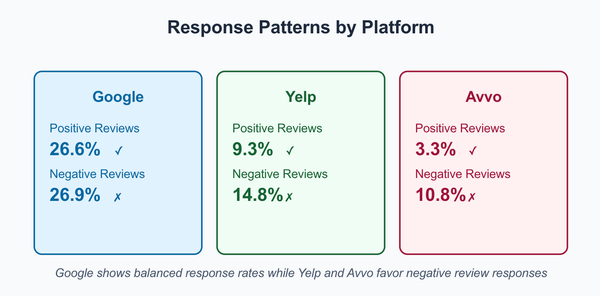Employee Rights During Mergers, Acquisitions, or Layoffs

In 2023, nearly 40,000 mergers and acquisitions (M&A) took place around the world. While this number is similar to recent years, it’s slightly lower than in 2022 (Statista). One thing often comes to mind for employees on either the buyer or target side: uncertainty. M&As bring significant changes that can affect workers in many ways. Fears about losing jobs or benefits are common, and these concerns are real. Layoffs are often one of the first results of a merger or acquisition. While some M&As cause little disruption, most lead to significant changes.
In this blog, Lawyersrating.FYI explores employee rights in mergers and acquisitions and how these events impact employees. We also discuss how to manage the process to reduce adverse effects.
What is a Merger & Acquisition?
The terms “merger” and “acquisition” are often used together but have slightly different meanings.
A merger refers to the combination of two companies into one. Typically, mergers involve companies of similar size, profits, and market capabilities. Both companies' stock is dissolved, and new stock is issued for the newly formed combined company.
An acquisition, on the other hand, occurs when one company takes control of another. In an acquisition, the acquiring company completely absorbs the target company, which ceases to exist as a separate entity. Unlike in a merger, the acquiring company's stock continues to trade, but the target company's shares are no longer available.
The Impact of Mergers and Acquisitions on Employees

After employees no longer need to leave, there are still human resource challenges to address for those who remain, especially regarding fundamental employee rights in mergers and acquisitions. The nature of human relationships means that the issues faced can be numerous, but here are some of the most common ones the newly formed company will need to handle:
- Wage Disparities: Differences in wages between the merging companies will likely exist. Employees may discuss these discrepancies; even small wage gaps can lead to significant resentment.
- Cultural Differences: An excellent way to understand how culture affects employees is by imagining staying in a foreign country. Even when the differences aren’t noticeable, everything feels different, which can be unsettling.
- General Disillusionment: Change itself can lead to feelings of disillusionment among employees. The nature of M&A means that some people won’t support it for various reasons.
- Layoff Concerns: Anxiety about job security is common among employees during mergers and acquisitions, with many fearing layoffs. The likelihood of these layoffs often varies by industry, with technology sectors typically experiencing fewer cuts than manufacturing.
- Effective Communication: A strong change management strategy is crucial for easing employee anxiety during M&As. It ensures that the acquiring company clearly communicates what changes are happening, how employees’ roles will be affected, and the procedures for layoffs.
However, mergers and acquisitions can also have positive effects on employees, which change managers will aim to highlight and take advantage of:
- Broader Perspectives: Working at a more extensive, growing company can offer employees better career prospects. The name recognition of a more prominent company can open doors in ways that might not happen in smaller, less-known firms.
- New Job Opportunities: Larger companies offer career advancement opportunities that smaller companies may not. Employees may get to work in a different location or move into a higher-level role.
- New Training Opportunities: M&As often involve training, particularly in new systems. Enthusiastic employees eager to learn new skills can stand out and benefit from these opportunities.
If you're stressed about mergers and acquisitions, visit the lawyer density statistics page, which will help you find the best employment lawyer based on your state.
Employee Rights During Merger & Acquisition
Layoffs are often a part of mergers and acquisitions, and while it can be tough to avoid job loss, it’s essential to understand your rights as an employee and review your current contract. Your contract likely includes details about severance pay and other important clauses, such as non-compete agreements. In some cases, you may be entitled to a specific notice period, depending on your location and contract terms. If you remain with the acquiring company, carefully review any documents before signing.
Here are some key points about employee rights during M&As:
- Notice and Consultation: According to Worker Adjustment and Retraining Notification (WARN) Act employees should be notified about the merger or acquisition in advance minimum 60 days prior and should be consulted about potential changes to their roles or employment terms.
- No Less Favorable Conditions: The new employer must offer terms not worse than what you had with the previous employer, including salary, benefits, and working conditions.
- Seniority Recognition: Seniority at your previous company should be considered when determining your position and benefits in the new organization.
- Potential for Job Loss: Depending on the nature of the merger, some employees may face layoffs due to redundancy or restructuring. In such cases, the employers must pay proper severance pay of one-two weeks every year worked. However, severance packages can vary widely based on company policy, industry norms, and the employee's position and tenure. If an employee gets underpaid, they can contact an employment lawyer and take legal action.
Laws Protecting Employee Rights During Mergers & Acquisition
Labor laws governing employee protections during mergers and acquisitions (M&As) in the U.S. vary by federal and state jurisdiction. While there isn't a unified federal law that explicitly addresses employee protections in M&As, several federal laws and state-specific regulations provide guidance. If you think that your rights are being amended, Here’s an overview of critical protections and relevant state labor laws:
Federal Labor Laws:
1) Worker Adjustment and Retraining Notification (WARN) Act
WARN ACT requires employers with 100 or more employees to provide at least 60 days' notice of mass layoffs or plant closings affecting 50+ employees. It is applicable during M&As when significant layoffs or restructuring occurs.
2) Fair Labor Standards Act (FLSA)
FLSA Ensures employees are compensated for work done during the M&A transition period, including overtime pay for non-exempt workers.
3) National Labor Relations Act (NLRA)
NLRA protects employees' rights to unionize and collectively bargain, even during ownership changes. This law also states that the successor company after M&A may be obligated to recognize pre-existing union agreements.
4) Employment Retirement Income Security Act (ERISA)
ERISA Act protects employee benefits like retirement plans and health insurance during M&A transitions.
State-Specific Labor Laws in Major Regions of the US
- California: The California WARN Act applies to businesses with 75+ employees, with stricter notice period notification requirements (60 days prior). Employers must also adhere to severance pay policies if they are part of company contracts.
- New York: The New York State WARN Act extends protections to businesses with 50+ employees and requires 90 days’ notice for significant layoffs.
- Illinois: According to the Illinois Wage Payment and Collection Act, employers must pay all earned wages, including unused vacation days, promptly during business transitions.
- Texas: As per Texas Payday Law, employers are not required to offer severance pay unless stipulated by an employment agreement or company policy.
- Massachusetts: The State Labor Law of Massachusetts protects accrued employee benefits like unused vacation and mandates fair payment during transitions.
- Florida: The state of Florida has fewer state-specific labor protections but adheres to WARN Act requirements with 100 or more employees.
- Washington: Just like in Texas, employers are not obligated to provide severance pay in Washington as per the state Law. However, they must comply with severance agreements if offered in the agreement, and some localities have additional layoff notice rules.
Questions to Ask from Your Employer During an Acquisition
Ineffective communication during a merger—especially vague or one-directional—can significantly harm employee morale and performance. More critically, essential employees who contribute to the company's success may feel compelled to leave if they don’t feel secure or valued during the transition. Understanding employee rights in mergers and acquisitions becomes important to help employees feel supported.
It’s natural for employees to have specific inquiries during a merger, and how these questions are addressed can directly influence their productivity, engagement, and decision to remain with the new organization. Here are some common questions employees may raise:
- How will my compensation, benefits, time off, and severance arrangements change?
- Are there any plans to move job functions to different locations?
- Will there be any job openings in other/new offices or regions?
- Will my role or responsibilities change?
- What will the new hierarchy or reporting structure be?
- Will our workflows, systems, or procedures be altered? If yes, what type of training will be offered?
- How should we respond to questions from clients or the press?
- When can we expect official announcements regarding the merger?
If you feel your company’s mergers and acquisitions are not fair, you can get professional assistance from an employment or labor attorney by visiting the Lawyersrating.FYI platform, where you can find the best lawyers to suit your needs!

Consult With a Top-Notch Employment Attorney Today!
Job termination during a merger or acquisition, including layoffs after acquisition, can open the door to new opportunities, especially when handled legally and fairly. It might lead to a role that better matches your skills, offers higher pay, and provides more growth potential. Don't take a layoff personally—unless you suspect unfair treatment. If you believe the decision was unjust, gather evidence and seek the best employment or labor lawyer through the Lawyersrating.FYI platform with ease. Sign up today and take control of your future!
Frequently Asked Questions
Does the WARN Act apply to mergers and acquisitions?
The WARN Act can be complicated during mergers and acquisitions, especially if layoffs happen before, during, or after the deal. Both the buyer and the seller need to be aware of their responsibilities under the WARN Act and include them in the purchase agreement.
Will I lose my job if my company is acquired?
Job loss is possible during company acquisitions, especially if there are overlapping roles and responsibilities. Once the two companies merge, leaders may lay off employees to streamline operations.
What is the rule of 70 for layoffs?
The Rule of 70 refers to a formula where an employee's years of service with the company, plus their age at the time of job termination, should equal or exceed 70. To qualify, the employee must have at least 10 years of service and be 55.
What is the average employee turnover after a merger?
Around 33% of employees leave after an acquisition. Additionally, 47% of key employees may leave within the first year, and 75% may leave within three years following a merger or acquisition.





